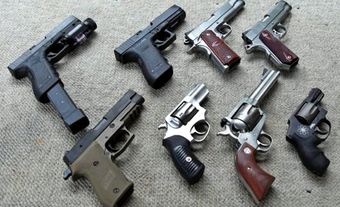On 6 December 1989, a man entered a mechanical engineering classroom at Montreal’s École Polytechnique armed with a semi-automatic weapon. After separating the women from the men, he opened fire on the women while screaming, “You are all feminists.” Fourteen young women were murdered, and 13 other people were wounded. The shooter then turned the gun on himself. In his suicide note, he blamed feminists for ruining his life. The note contained a list of 19 “radical feminists” who he said would have been killed had he not run out of time. It included the names of well-known women in Quebec, including journalists, television personalities and union leaders.

Fourteen women lost their lives that day. Their names were Geneviève Bergeron; Hélène Colgan; Nathalie Croteau; Barbara Daigneault; Anne-Marie Edward; Maud Haviernick; Barbara Klucznik-Widajewicz; Maryse Laganière; Maryse Leclair; Anne-Marie Lemay; Sonia Pelletier; Michèle Richard; Annie St-Arneault ; Annie Turcotte.
The event, which became known as the “Montreal Massacre,” sent shock waves through Quebec and the rest of Canada. In the days and weeks that followed, there was widespread public debate focused on the cause of, and motive for, the attack. For some, the actions of the shooter, Marc Lépine, were an isolated incident without any social significance. For others, it revealed a profound malaise about the place of women in society. Many suggested that the tragedy was indicative of deep-rooted and widespread anti-feminist sentiment.
The event led to larger debates about violence against women and stricter gun control laws in Canada. After the events of 6 December, the Coalition for Gun Control was formed. Their efforts contributed to the November 1995 adoption of Bill C-68, the federal firearm control legislation. Its stipulations included mandatory registration of all firearms and licensing for firearm owners; a national registry for all weapons; background checks; and verification processes and controls on ammunition sales.
In 1991, the Parliament of Canada declared 6 December to be a National Day of Remembrance and Action on Violence Against Women. It is also known as White Ribbon Day.

 Share on Facebook
Share on Facebook Share on X
Share on X Share by Email
Share by Email Share on Google Classroom
Share on Google Classroom


